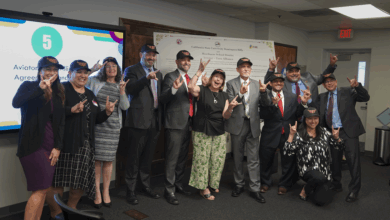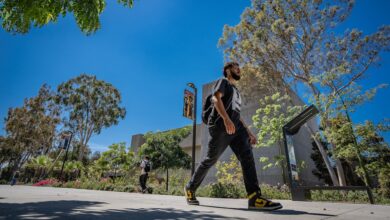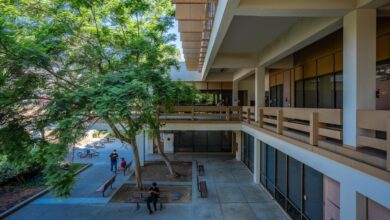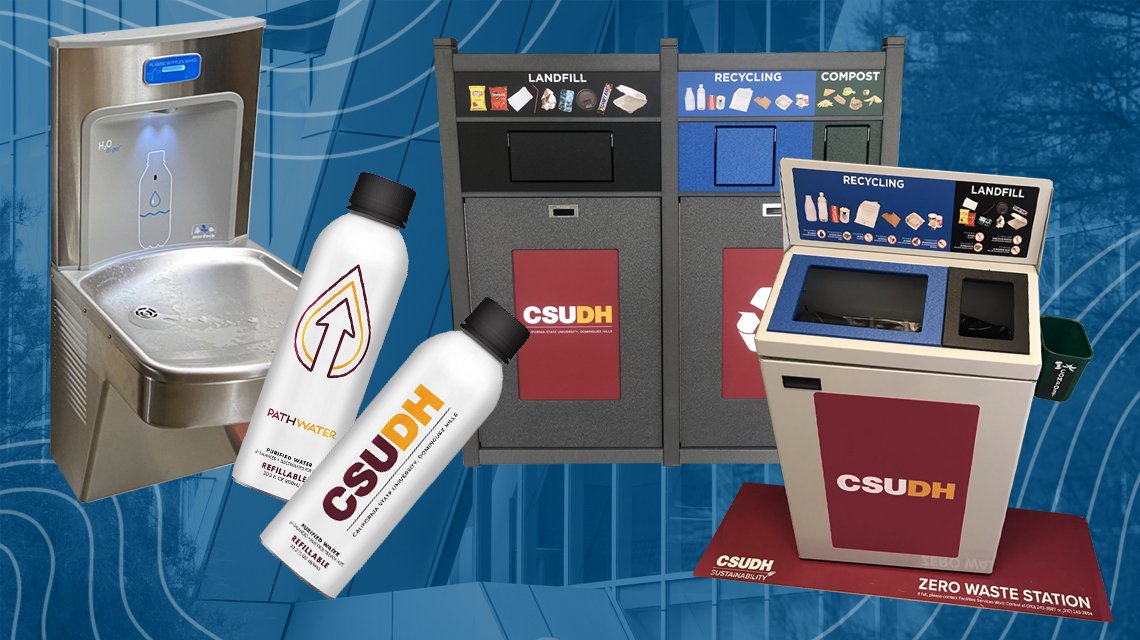 As the Earth’s dominant species, humans have a myriad of self-inflicted ecological challenges to contend with. Some are monumental and require international buy-in, like climate change, while others involve localized activism and direct action, such as biohazard cleanup. One cause of all the devastation stands out above the rest – waste.
As the Earth’s dominant species, humans have a myriad of self-inflicted ecological challenges to contend with. Some are monumental and require international buy-in, like climate change, while others involve localized activism and direct action, such as biohazard cleanup. One cause of all the devastation stands out above the rest – waste.
CSUDH has a large ecological footprint. The campus community and its leaders strive to be environmentally conscious, but reaching the goals outlined in the “Zero Waste Strategic Plan,” which the university adopted in August 2020 will require both direct action and the Toro Nation to be all-in.

The university’s zero waste goal is to ensure at least 90 percent of its waste materials, or more than 1,200 tons of trash, are diverted annually to recycling and composting streams instead of landfills.
“While we can provide the physical infrastructure to go zero waste, this will still require a massive culture shift by the campus community to start moving away from our ‘throw-away’ or convenience culture,” says CSUDH Sustainability Manager Ellie Perry, who began working to substantially reduce waste on campus when she arrived in 2017.
She adds, “Many people have been brought up to think of throwing things away as a right, and to prioritize the convenience of disposing instead of thinking about the larger impacts landfills have on our ecosystem and disadvantaged communities. That needs to change.”
CSUDH’s 14th Annual Earth Day. A series of virtual live presentations and workshops hosted by campus clubs and organizations will take place April 20, from 10 a.m. to 2:30 p.m. To register visit https://tinyurl.com/3wsrnfur.
Zero Waste Stations
When COVID-19 restrictions are lifted and Toros begin returning to campus, they will notice many new updated recycling stations around campus, but no personal waste bins in their offices or workspaces. Daily waste bin pick-ups are also limited to the new recycling stations.
The change in CSUDH’s bin infrastructure is the result of school waste reduction laws, outlined in California Assembly Bill 827, and the requirement that organics and recycling bins be placed next to all trash bins.
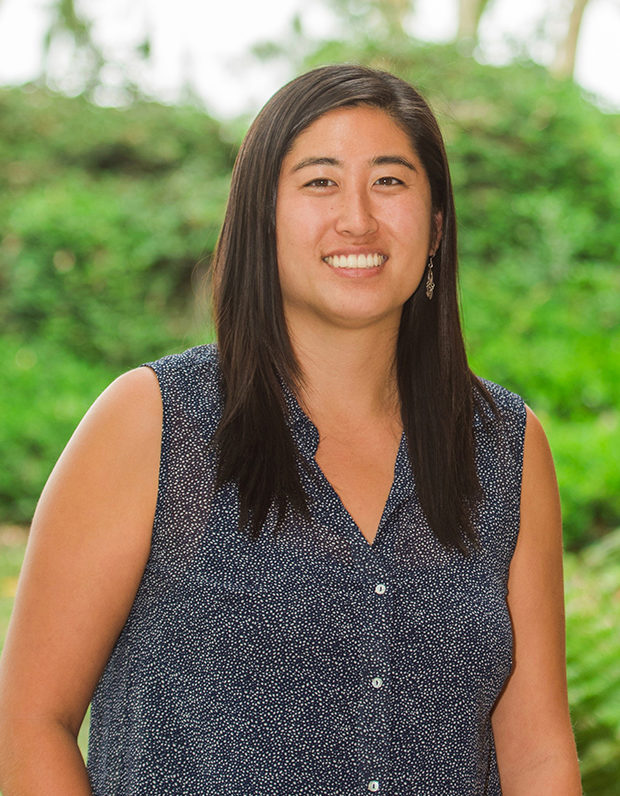
CSUDH has struggled with having a wide variety of bin types in buildings and on campus, with little correlation between where trash receptacles are placed and where recycling receptacles are located.
Now, receptacles are clearly designated and easily accessible, and all buildings have access to the new centralized zero waste stations that feature separate sections for landfill (trash), recycling, and compost (food waste) and will be emptied multiple times daily as part of regular custodial service. New exterior bins throughout campus walkways are also available with high-volume compartments.
To request a zero waste station near your area call (310) 243-3587.
Perry believes that the campus is ready and willing to fully adopt a new comprehensive recycling system. “The majority of feedback has been positive so far, as many people realize this is the right thing to do for our planet and our communities,” she says. “For those who have been hesitant about the changes, many are starting to understand that this is mandated by law, and that we are just working to stay ahead of compliance requirements.”
To help turn recycling on campus into a rewarding routine, faculty and staff are encouraged to get into the habit of bringing their trash regularly to a zero waste station after arriving at their offices, or before leaving campus when the workday ends.
“It’s good to think about how we store recyclables or compost materials at home,” Perry says. “Most of us do not have bins in every single room of our house, so we naturally get in the habit of periodically dumping items into the main bins rather than letting them accumulate. That’s a good practice to implement on campus with this new system.”
In August 2020, CSUDH earned a “STARS Silver” rating from the Association for the Advancement of Sustainability in Higher Education (AASHE) in recognition of its sustainability achievements.
To simplify the process, Perry recommends that employees temporarily store recyclables inside other recyclables, such as a cardboard box, before taking out to the bin. For food scraps that can smell and get messy, she likes to store the waste in containers that need to be disposed of anyway, like a used clear plastic bag.
Perry says that “recycling is cheaper than trash,” and one of the most transformational changes to going zero waste has been the university administration’s recognition of waste and recycling as a key utility, along with energy and water.
“We have administrative backing and support to focus on finding cost savings, grant opportunities, and investing in necessary infrastructure and educational programs to make zero waste successful,” she says. “As a sunk utility cost, trash costs the university hundreds of thousands of dollars per year and is associated with heavy penalties and fines if we do not comply with the new regulations.”
More Successful Waste Reduction Programs
For several years now, CSUDH has been successfully reducing its waste with sustainability initiatives. This includes the national Food Recovery Network (FRN). The university’s chapter was designed to help address the basic needs of students.
In July 2020, CSUDH food programs received one of the university’s two Higher Education Energy Efficiency and Sustainability Best Practices Awards.
Called FRN Fridays, student volunteers intercept fresh food that Campus Dining would typically throw out and diverts it to campus housing, student centers, and food pantries where it is served to students as a buffet.
“Our campus is highly aware of food insecurity amongst our students, and our edible food recovery rate effort demonstrates that. It’s phenomenal,” says Perry. “This means that most food doesn’t get wasted in the first place, so we have very little in terms of organic waste to start with.”
Reusables
Last fall, the Office of Sustainability partnered with Campus Dining to pilot a reusable container initiative called the “Toro Token” program at the Toro Fresh to-go eatery on campus.
In this program, students receive food in reusable containers. When finished eating, they exchange their containers for a bronze token so they won’t have to carry a dirty container around all day. The token is cashed in for a fresh container on their next visit, providing a continuous reduce and reuse option for students.
For recycling and reduce and reuse resources, visit https://www.csudh.edu/sustainability/campus-initiatives/waste-management/, or contact the Office of Sustainability at sustainability@csudh.edu.
In 2019, the CSU system passed a Single Use Plastics Policy that aims to eliminate single-use plastic water bottle purchasing on all CSU campuses by 2023, and bans single use plastic straws and bags.
CSUDH got ahead of the mandate early on by retrofitting all campus water fountains to include bottle fillers, converting them into “hydration stations.” Facilities Services also ordered 10,000 reusable aluminum water bottles. The bottles replace the former system through which departments would order Sparklets plastic water bottles from the warehouse for their offices and events.
“This is unique for a CSU campus,” says Perry. “No other campus has made such a deliberate effort to support reusable water bottle use in this fashion.”
CSUDH has a number of other sustainability initiatives, to learn more visit www.csudh.edu/sustainability/campus-initiatives/.




